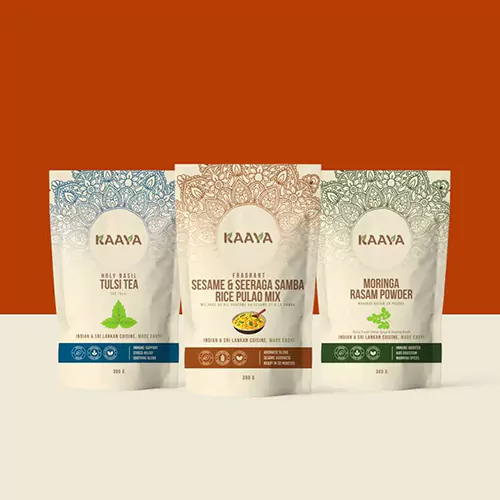Blog
Your Ultimate Guide to Plant-Based Diets

Over the last decade or so, it’s safe to say that we’ve seen a whole host of different trends and buzz words come and go, with regards to health and wellness. Some of these trends and fads have been just that. Others, however, have stuck around and are now a part of everyday life.
Plant-based diets for example, have proved to be extremely popular in the 21st century, and as the years keep ticking by, more and more people seem to be ditching the meat and seafood in favour of fruits and veggies.
The difference between plant-based diets and other fad diets out there is the fact that plant-based diets are not primarily designed with weight loss in mind. In fact, weight loss is an afterthought as the diet is instead designed primarily with ethics and the environment in mind.
We hear plant-based and instantly think of raw vegetables, leafy greens, and other raw plant-based foods, yet there is so much more to these diets than that. If you’re thinking of going animal-free, here’s a detailed guide to plant-based diets.
What are plant-based diets?
As you can probably guess from the name, plant-based diets are diets which emphasize the consumption of raw, natural, plant-based whole foods, while restricting meat, fish, eggs, dairy, and other animal-derived products or foods containing animal-derived ingredients.
Plant-based diets are not the same as vegetarian diets, nor are they necessarily vegan diets either, although they are vegan-friendly.
Plant-based diets aim to place an emphasis on whole foods, and natural foods which have been derived from plant-based ingredients. Food such as vegetables, fruits, nuts, seeds, legumes, whole grains, and healthy plant-based fats are all commonly consumed on a plant-based diet.
Vegan diets are plant-based, yet plant-based diets aren’t necessarily vegan. Sometimes plant-based dieters will in fact consume foods or beverages containing animal-derived ingredients, depending on how strict they’re being with their diets. Some plant-based dieters will consume very small amounts of animal-derived ingredients, though primarily, the majority of foods and drinks they consume come from plant-based sources.
Health benefits of plant-based diets
Plant-based diets aren’t simply beneficial for vegans or people looking to tackle animal cruelty, they can also be extremely healthy for the human body.
Plant-based ingredients are loaded full of vitamins, minerals, antioxidants, and other nutrients and they are therefore very good for you.
A few potential health benefits of plant-based diets include the following:
Healthy weight
One of the main advantages of following a plant-based diet is the fact that it can help to promote a healthy weight.
Plant-based foods are generally lower in calories, fats, and sugars, and are therefore useful for people looking to lose weight or manage their weight.
While some plant-based foods are indeed rich in calories and healthy fats, I.E nuts, coconut oil, and avocado, for the most part, plant-based diets are lower in calories than diets consisting of processed junk food.
Obesity has been linked with heart disease, strokes, hypertension, type-2 diabetes, and other very serious health issues which is why maintaining a healthy weight is considered to be so important.
Cognitive health benefits
Another benefit associated with most plant-based diets is an improvement in your cognitive health.
Plant-based diets generally consist of foods packed full of nutrients that improve cognitive health and help improve brain health and function.
Studies have found that fruits, vegetables, and other foods loaded full of antioxidants, vitamins, minerals, healthy fats, and other healthy compounds can not only prevent cognitive decline, they can also improve brain health and function.
People that follow a plant-based diet typically find that they can focus and concentrate more efficiently, they suffer with fewer mental health issues, and later in life, they’re less-likely to suffer with cognitive decline.
Studies have found that regular consumption of fruits, vegetables, nuts, seeds, and whole grains can reduce a person’s risk of suffering with dementia by as much as 20%.
Stronger immune system
The human immune system thrives upon vitamins, antioxidants, minerals, and other nutrients. The more we consume, generally the stronger our immune systems become.
One of the main benefits associated with plant-based diets is the fact that fresh fruits, vegetables, nuts, seeds, and other plant-based ingredients are loaded full of nutrients which have been found to strengthen and boost the immune system.
Consuming plant-based ingredients on a daily basis is a great way of strengthening your immune system and giving your body what it needs. Having a strong immune system means you’ll be less-likely to become ill, and if you do, you’ll recover quicker.
Environmental benefits of plant-based diets
Of course, it isn’t just the health benefits of plant-based diets that we need to focus on. Plant-based diets also happen to provide environmental benefits to our planet as well. Plant-based diets help to reduce and cut back on greenhouse gas emissions.
Each and every step of the production process for meat has been found to generate greenhouse gases which are contributing toward climate change. To begin with, forests such as the Amazon are being cleared to make way for green pastures to raise cattle on for beef. Then there’s the manufacturing processes, along with the methane produced by the cattle and other animals.
Put simply, raising and killing animals for meat produces far more CO2 and greenhouse gases than growing crops and producing plant-based foods and ingredients. Producing plant-based ingredients produces as much as 90% fewer greenhouse gases and emissions than those produced as a result of meat and dairy production. When it comes to tackling climate change and helping the environment, adopting a plant-based diet is one of the most effective ways of helping the planet.
Not only does a plant-based diet help cut back on greenhouse gases and emissions, it also reduces energy consumption as meat requires an extensive amount of processing before it’s ready to be sold as a culinary ingredient. Just to give you a rough idea of how much, it requires roughly 31.5 kilowatt-hours of energy to produce just one single pound of beef. On the flipside, plant-based protein sources such as nuts, beans, and legumes, require far less processing and therefore use far less energy.
As you can see, plant-based diets are not only very beneficial for the human body, they’re also extremely beneficial for the world that we live on.
Switching to a plant-based diet is therefore not only a great way to improve your health and wellbeing, it’s also a great way to help the environment and look after our planet.




